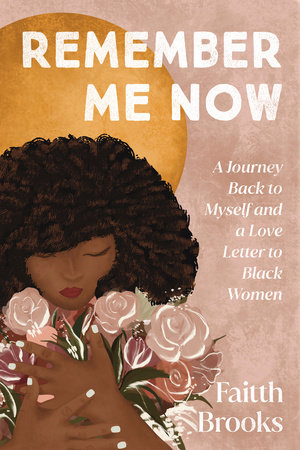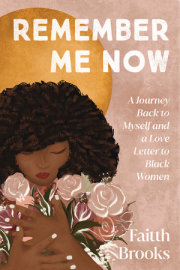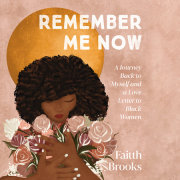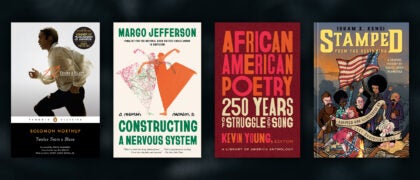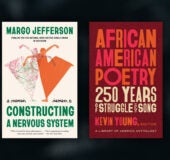IntroductionThere I was, hunched over on the floor. My breathing was rapid; my skin felt clammy. I’d just finished an online workout class. But that wasn’t the cause of my distress.
I think I’m going to be sick. I think I’m having a panic attack!I texted a friend, crying. The weight of what had happened a week before had caught up with me. Hard as I’d tried, I couldn’t outrun the pain.
A few weeks before, on a boring quarantine night, I’d joined a popular dating app. I’d talked to a few guys on other apps during stay-at-home orders, but nothing had materialized. Dating during a pandemic sucks, by the way. I felt frustrated and wanted to meet someone who was at least willing to hold a conversation. After a while, “wyd” and “how was your day” texts get old. It was time to change it up a bit. Maybe pandemic love was waiting for me on another app?
One night I connected with a charismatic, funny man who knew how to hold a conversation. He was kind and easy to be around. I felt like he saw me. We talked on the phone for hours and hung out a couple of times. I desperately wanted to be loved and known. He was interested in me, and that felt special.
My happiness was short-lived. One night he came over. I made dinner for us, and we talked, laughed, and played chess. Then he started making advances beyond what I was comfortable with. I’d already established my boundaries, but he used his words to manipulate me and push back. When it was over, he confidently declared, “I marked my territory.” Those words still haunt me.
For the days, weeks, and months that followed, it was hard for me to process and understand what had indeed happened. I was afraid. I couldn’t sleep. A replay of that night haunted my dreams. I blamed myself, questioning my judgment and what I could have done or said differently. I scolded myself for breaking my own rules of dating.
It was the summer of 2020—a trying time in our country. I spent most of my time creating anti-racism education resources, both in my day job and after work. It was easier for me to focus on doing something purposeful than to deal with my pain. I could hide the pain, but I couldn’t hide being Black. It felt like a second civil rights wave was building, and I needed to be a part of it. So I put my personal pain in the back seat. It was the height of the nationwide outcry after the murders of Ahmaud Arbery and George Floyd, and my work at a racial literacy non-profit organization was busier than ever. I was finding my stride in my work away from work—advocating online, delivering to the thousands more who began following me after a few posts went viral, and feeling inspired to write more than I had in years past. I was getting noticed by literary agents, booking podcast interviews, and fielding requests for speaking engagements. At work, I managed a team of program coordinators and volunteers, leading meaningful projects to produce valuable resources for the community.
Inside, I was devastated. But it didn’t matter how I felt, because there was work to be done. With so much going on, I didn’t think I could stop and do what I needed to do to take care of myself. I coped with the lingering pain by busying myself and showing up to advocate, speak at events, organize protests, and take care of the endless tasks at work. I operated like a true Enneagram Eight—there was a crisis, and I was ready to respond and fight injustice.
I knew that many things would remain the same in the country after this “watershed moment”; nevertheless, I felt I couldn’t allow myself to ignore this moment in history and remain silent.
The murders of Breonna Taylor in March and Atatiana Jefferson the year before hit me in my gut. One day they were, like me, living life, pursuing love, playing video games with a nephew. The next day they were gone. From my recent experience, I knew how quickly an ordinary evening could turn into a tragedy that changed and consumed your life. I saw how easy it was for Black women and the pain we carry to be forgotten, our lives ended or upended. The silence from my white friends in the face of these tragedies made things crystal clear for me. If they weren’t devastated by the death of an unarmed twenty-six-year-old Black woman, what would compel them to care for me? If you can’t see me in Breonna, then you don’t see me. Knowing that hurt. Some white people around me, the ones who said they would stand by Faitth, felt no compulsion to speak up for Breonna. Some days it felt like I was drowning in the waves of silence.
The indifference toward Breonna’s life sent a strong message to Black women. I think it created a shift for Black women activists everywhere. I began to see Black women noting the futility of constantly engaging and educating white people about race. It began to feel like we were essentially trying to convince them of our humanity and worth.
But how could I shout “Protect Black Women” and “Say Her Name” and not prioritize
this Black woman? Me. I had to remember me now in the same way I was begging people to remember my sisters. I had to see myself as worthy of receiving the same advocacy I was giving.
It would take a radical change for me to pursue the kind of healing I needed. Along the way I recognized I would need to address hurts going back to my childhood in order to understand how I’d gotten to this place—wounded and unable to prioritize my healing over the desire to be everything I thought everyone needed me to be. That realization took me back to the young me fighting to find my identity while striving to belong.
I am a Black woman with a God-given purpose. I was never designed to fit into Eurocentric standards of beauty and culture. I am my mother and father’s daughter, my brother’s sister, my grandparents’ granddaughter, and my aunts’ and uncles’ niece. Most of all, I am my ancestors’ legacy. I’ve been formed and loved by Black people. I cannot and will not show up as anyone other than who I am. I have community and I belong—my heart rests in this assurance. I have nothing to prove. I have peace, so I dance in my living room, cry when I need to, laugh often, take risks, and know I am worth loving. I am a liberated Black woman, embracing every ounce of who I am.
This is my mantra.
But it wasn’t always this way.
In the course of my life, I struggled. Growing up, I’d adopt whatever interests my white friends had. I remember being proud when people said I was “a white Black girl.”
The racial and social justice activist I am today hates to admit this on paper, but it’s the truth. Being called “a white Black girl” made me feel accepted, valued, and safe. I didn’t know that assimilation was poison.
I didn’t know that assimilation was my way of avoiding the pain of rejection.
By God’s grace, I eventually learned how assimilation was a deep betrayal of my community. In the school of experience, I learned that there is no scale measuring Blackness. I now reject the lie of “not Black enough” and have come to discover that we are always enough just as we are. Once I realized that I, a first-generation suburban Black girl, was enough, I unlocked a new level of personal freedom.
Letting go of these harmful mindsets transformed my life and motivated me to fight not just for
my mental health and peace but for other Black women also.
This book is the story of my journey as a single Black woman who was homeschooled and raised in conservative evangelical Christian culture and who grew up to become an activist.
I don’t know about you, but I’m tired of being suffocated by white supremacy. I want to breathe again, and I suspect you do too.
It’s hard out here.
How are we supposed to fit into a culture that was never ours? How are we supposed to fit into a beauty standard designed to exclude us? (A beauty standard that some Black men love and prefer.) I have felt undesirable and unable to fit into these boxes of belonging. The feeling was only multiplied when I was one of the few Black people in a friend group or one of the only Black women at an event, in a church service, or in a staff meeting. We have to endure a lot to survive in spaces where we are not fully seen.
And it affects us. Even when we get to grow up in an intentionally Black-affirming community, it still affects us.
Malcolm X had it right when he said, “The most disrespected person in America is the Black woman. The most unprotected person in America is the Black woman. The most neglected person in America is the Black woman.”
Copyright © 2023 by Faitth Brooks. All rights reserved. No part of this excerpt may be reproduced or reprinted without permission in writing from the publisher.

